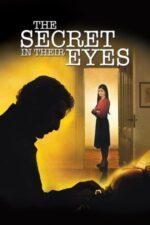The Tightrope Walk: Exploring Tension in Cinema
Isn't there something inherently captivating about that feeling when you’re perched on the edge of your seat? That prickling sensation at the back of your neck, the held breath, the anticipation…that’s tension, and it’s arguably one of cinema’s most potent tools. It’s more than just suspense; it's a carefully constructed atmosphere that keeps us invested, even when nothing overtly "happens." And filmmakers have been playing with it in fascinating ways for decades.
Think about Poughkeepsie Crispies. On the surface, it seems like a quirky comedy about an obsession with a bizarre snack. But beneath the surface lies a deep unease, a tension born from the protagonist’s rigid routines and unsettling detachment. It's not jump scares or explosions; it's the subtle discomfort of witnessing someone so utterly consumed by something seemingly trivial. That feeling is deliciously uncomfortable – and that’s precisely what makes it work.
That kind of understated tension differs wildly from, say, The Last Card. Here, we have a classic noir setup: a down-on-his-luck detective facing impossible odds with a looming threat hanging over him. The ticking clock, the shadowy figures, the sense that one wrong move could be fatal – it’s all designed to ratchet up the pressure. It's a different kind of tension entirely - visceral and immediate.
What I find particularly interesting is how filmmakers use tension to explore deeper themes. STRINGS, for example, uses the confined space of a shared apartment to amplify the emotional weight of a breakup. The silence itself becomes a source of tension, forcing Jordan and Elena to confront uncomfortable truths about their relationship. It’s not just about what they say; it's about what remains unsaid, the awkward pauses, the lingering glances.
Even films that seem lighter in tone can utilize tension effectively. Dead-Weight, with its seemingly innocent party gone wrong, builds a creeping sense of dread as the consequences of their actions unfold. It’s a reminder that even youthful exuberance can have unforeseen and unsettling repercussions. And then you've got Connection, which takes the concept to an almost philosophical extreme – the tension stemming not from physical danger but from the psychological game being played between captor and captive.
Ultimately, tension isn't about cheap thrills; it’s about creating a space for emotional investment. It’s about making us care deeply about what happens next, even if we don’t know what that is. And when done well – as in films like Close Quarters, which uses the vulnerability of infertility to create an undercurrent of anxiety and hope – it can be profoundly moving.
So, next time you're looking for a film experience that truly grips you, consider not just what’s happening on screen, but how it’s making you feel. That tightrope walk between anticipation and dread? That's the magic of cinematic tension at its finest.







































